Sleep On It

- Poor sleep can increase stroke risk 400%,
- Ineffective sleep makes you immediately less productive,
- Poor sleep heightens risk of dementia & makes you a pain to be around.
Mark Wolverton wrote in Psychology Today of a seminal 2002 study that revealed a strong relationship between an individual’s reported sleep and mortality. “People who slept less than seven hours a night—or more than nine—were at increased risk for all-cause mortality,” says University of Pittsburgh psychiatrist Martica Hall. Other studies revealed a similar curvilinear relationship between sleep duration and conditions such as cardiovascular disease and obesity.
Your body’s ‘Circadian Clock’ broadly follows the expected natural patterns of night and day with your brain and cells attentive to external cues such as temperature, sounds and light. Modern life and your behaviour messes with those natural cues to varying degrees at varying times. Plus we consume things like caffeine and alcohol. If you poured coffee, Red Bull or Jack Daniels into your TiVo, it would probably struggle to record ‘The Walking Dead’ at the right time for you. Your body reacts much the same way.
Research from the University of Surrey published earlier this year helps explain how insufficient sleep alters gene expression – offering important clues to the ways in which sleep and health are linked at the molecular level. The study’s authors found that after a single week of insufficient sleep (fewer than six hours nightly) blood samples from participants revealed altered activity in over 700 genes, including those related to heart disease, diabetes, metabolism, and inflammatory, immune, and stress responses.
Sleep is an essential restorative function, in more ways than one. But for a start, here’s just one way reported in Forbes by Melanie Heiken. When you sleep, your brain undergoes a cleaning process that removes waste linked to Alzheimer’s and Dementia, according to a study by the University of Rochester Medical Centre. They used imaging to look deep into the brains of mice and observed that the brain functions differently while asleep, mopping up accumulated proteins at a much faster rate. Led by Maiken Nedergaard, the researchers discovered that a waste-draining system they call the ‘Glymphatic System’ is ten times more active during sleep than while awake. This nocturnal cleaning system removes proteins called amyloid-beta, which accumulate into the plaques that may contribute to Alzheimer’s disease and Dementia.
Researchers at the Erasmus MC University Medical Center in Rotterdam, the Netherlands, and the University of Surrey in the UK measured white blood cell counts in young men who sleep eight hours and men whose sleep was restricted, and found a spike in white blood cells, particularly those called granulocytes, released in response to immune system threat. So it would seem that severe sleep loss jolts the immune system just as stress does and, if that accumulates, it affects your health. It could quadruple your risk of a stroke. Though researchers don’t know the exact mechanism, it seems that chronic lack of sleep causes inflammation, elevates blood pressure and heart rate, and affects glucose levels, leading to a much higher stroke risk in the sleep-deprived.
Sleep increases the ability of the four main healthy lifestyle habits (a healthy diet, exercise, moderate alcohol consumption and not smoking) to protect the body against cardiovascular disease.
Without Good Sleep With Good Sleep
Cardio-Vascular Disease Down 57% Down 65%
Fatal Cardio-Vascular Disease Down 67% Down 83%
A study by the Harvard Medical School found that disrupted sleep patterns and irregular routines caused glucose self regulation in subjects to “go haywire.” Even a lie-in contributes to that. U.K. researchers Yvonne Harrison and James Horne reviewed multiple studies on the impact of sleep deprivation on decision making and problem solving. They concluded that it can lead to impaired communication, a lack of flexibility and willingness to try alternatives, a reduced ability to innovate, and an inability to deal with rapidly changing situations. Poor sleep leads to poorer decision-making and, often, one of those poorer decisions is to not do anything about the poor sleep. Most people are blissfully unaware of how impaired they are with even minor levels of sleep disruption, nevermind those who think they can rock on after pulling an all-nighter.
Those heroic doctors and residents in hospitals working those famously long hours of theirs – a study in the Archives of Surgery found that residents were critically impaired by tiredness during more than a quarter of waking hours and that, when sleep deprived, they were 22% more likely to commit medical errors. A 2009 JAMA study revealed an increased rate of complications when surgical procedures were performed by Doctors who had less than a six-hour window for sleep between their last procedure the day before and the first procedure the next day.
Poor sleep affects us mentally and physically in all spheres of our life. Once again, it’s utterly interconnected and can spiral if we’re not careful. We don’t need to be puritan about it, just sensible. Easier said than done it seems for many.
When asked about the best tool to sort out poor sleep, sleep researcher Brad Cardinal responded, “Regular physical activity is better than any meds.”
Sheldon Cohen’s researchers at Carnegie Mellon University tested sleep and immunity. They exposed healthy adults to cold viruses, isolating and monitoring for five days afterwards. People who had been recently under stress showed increased resistance to Cortisol. They also found participants had more Cytokines, which trigger inflammation.
In their book ‘NutureShock’, Po Bronson and Ashley Merryman detail how sleep impacts our attitude. Negative stimuli get processed by the amygdala. Positive or neutral stimuli get processed by the hippocampus. Lack of sleep affects the hippocampus more than it does the amygdala. Therefore, sleep-deprived people struggle to recall pleasant memories but remember downcast ones well. In a word-memorising study, sleep-deprived participants could remember 81% of negative words such as ‘cancer’, yet only 31% of positive or neutral ones like ‘basket’ or ‘sunshine.’
So what does it all mean? That when you get stressed out and stop sleeping, or stop sleeping well, you get sick. So, poor sleep can lead to dementia, stroke, depression and lowered immunity to illness generally – all of which feeds on itself in a negative spiral. How much sleep should you get and how can you improve your odds of getting that?
Soft ear plugs, eye shades, routine, listen to white noise, no caffeine or alcohol.
For most people, the best sleep duration is seven hours. Those averaging eight hours have 12% worse morbidity than those sleeping seven. From a longevity point of view, it would be better to sleep five hours than eight. “People who slept less than seven hours a night – or more than nine – were at increased risk for all-cause mortality,” says University of Pittsburgh psychiatrist Martica Hall.
A sleep-supportive evening meal would not be too late and would consist of complex carbs, magnesium and protein. Examples are chicken with broccoli with a low-fat cheese sauce or a cheese and vegetable pasta. Chuck in some spinach or kale for the magnesium. Other options include dark leafy greens, pumpkin seeds, mackerel, tuna, beans, brown rice, avocado, plain yoghurt, bananas, figs, or dark chocolate. Don’t eat less than two hours before sleeping and keep night-time meals light on the spices.
Decent vegetable sources of protein are:
- Asparagus,
- Avocado,
- Beans,
- Broccoli,
- Cauliflower,
- Chickpeas,
- Lentils,
- Peas,
- Quinoa,
- Spinach,
- Almonds,
- Cashews,
- Peanuts,
- Peas,
- Pistachios,
If Marie Antoinette was alive today and made aware of the grumblings of the peasants, she might exclaim, “Let them eat quinoa.”
Various studies propose a range of tips:
- Be consistent,
- Have a routine,
- Empty your mind,
- Before bed, avoid alcohol, caffeine, nicotine or a big meal,
- Exercise earlier in the day,
- Block out stimuli,
- Seek snoring solutions,
- Don’t be obese,
- Check your mattress and pillow.
Make your bedroom a couple of degrees cooler than the rest of your house, irrespective of the season. Darken your rooms the hour before your bedtime. Light affects our melatonin levels and that’s a big player in sleep. The light from TVs and smartphones will mess with that. Smartphone screen illumination can suppress melatonin production by 20%. It is bad enough that you’ll fret about some email you checked when you didn’t have to at 11pm but that light smacking your eyeballs will make it worse. It may be that the electronic paper screens of eReaders do not have the same negative effect.
One app that adjusts the light emanating from your device is ‘f.lux.’ It knows what time it is where you are and what the natural light levels should be. It knows that your eyes should be receiving signals from that environmental light to synch up with your biology for, amongst other things, our sleep cycle. With that knowledge, it filters and adjusts the light type and levels to suit. Computer screens, tablets and mobile phones emit full spectrum light around the clock, just like the sun. Exposure to blue light at the wrong time of day can keep you awake later and interfere with the quality of your sleep. f.lux tries to help this by removing blue and green light to help you wind down in the evenings. At the time of writing, they’ve had 8 million downloads.
I have another iPhone app called ‘Sleep Cycle’ which monitors my body movements as I sleep and works out where in the sleep cycle of my circadian rhythms I am at. I might set the alarm for 6am but it can unilaterally wake me at 5:47 if that is the optimum time closest to 6am for my brain’s cycles. No doubt there are other products. I can’t swear for the science behind it but when I’m having trouble sleeping, usually during periods of extensive travel where all the exercise, eating and stress patterns go out the door, I find it helpful.
It may actually exist for real now but I saw a single-frame cartoon of an iPhone alarm clock app with the snooze button costing you $1.99. It’s funny, but with a real seed of truth about it.
“Sleep is a waste of time.” – Thomas Edison (Inventor of the lightbulb, possibly the single item most responsible for messing up our Circadian Rhythms.)
_____
This was an excerpt from the book ‘Live work love’
Learn how to move people towards change at 2dangerousthingsayear.com
More ideas at http://gettingbetterbuyin.com/
Posted on December 4, 2018, in Employee Engagement. Bookmark the permalink. Leave a comment.
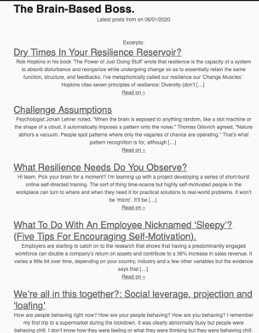
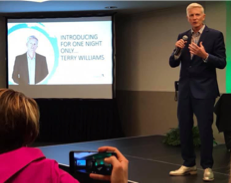


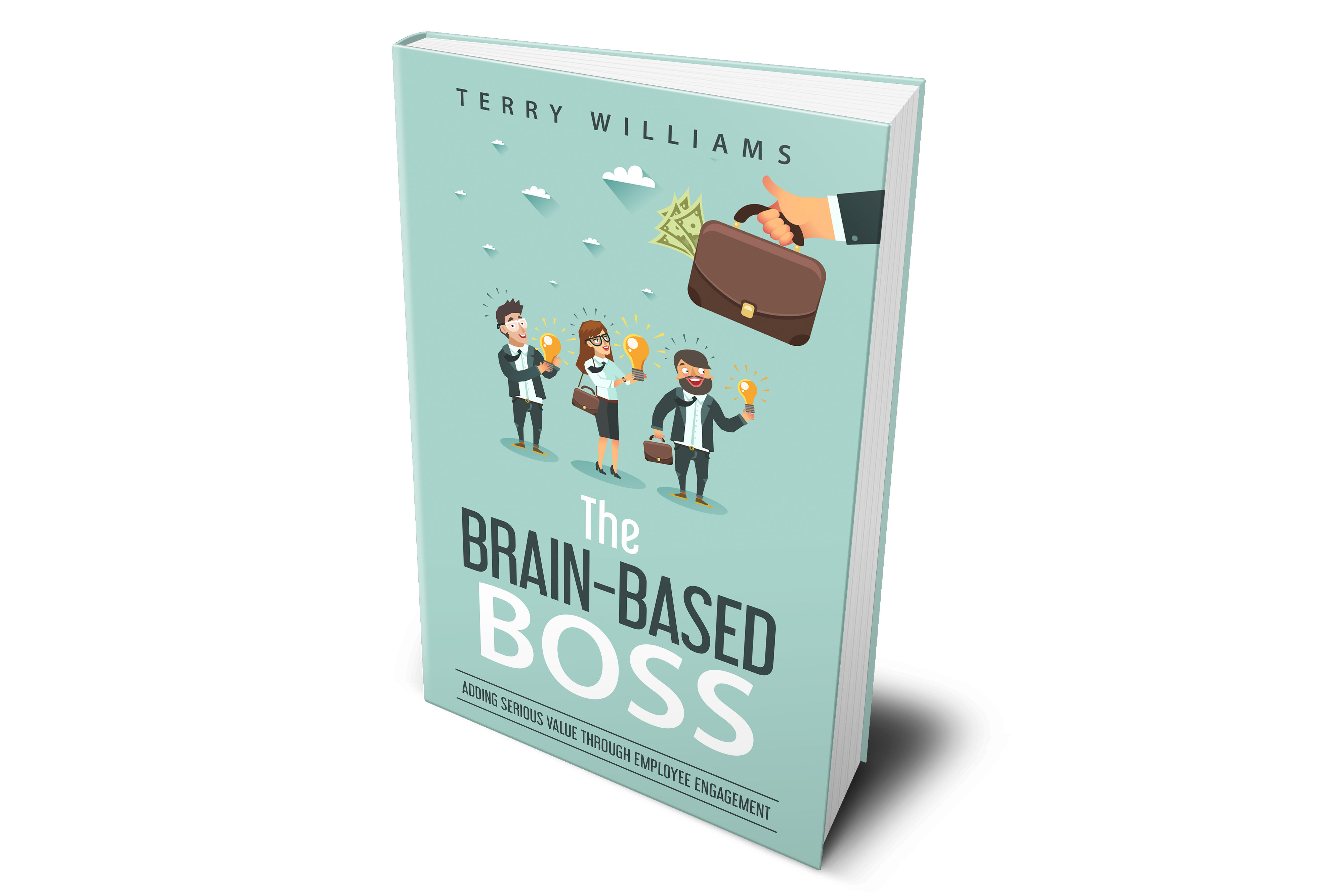
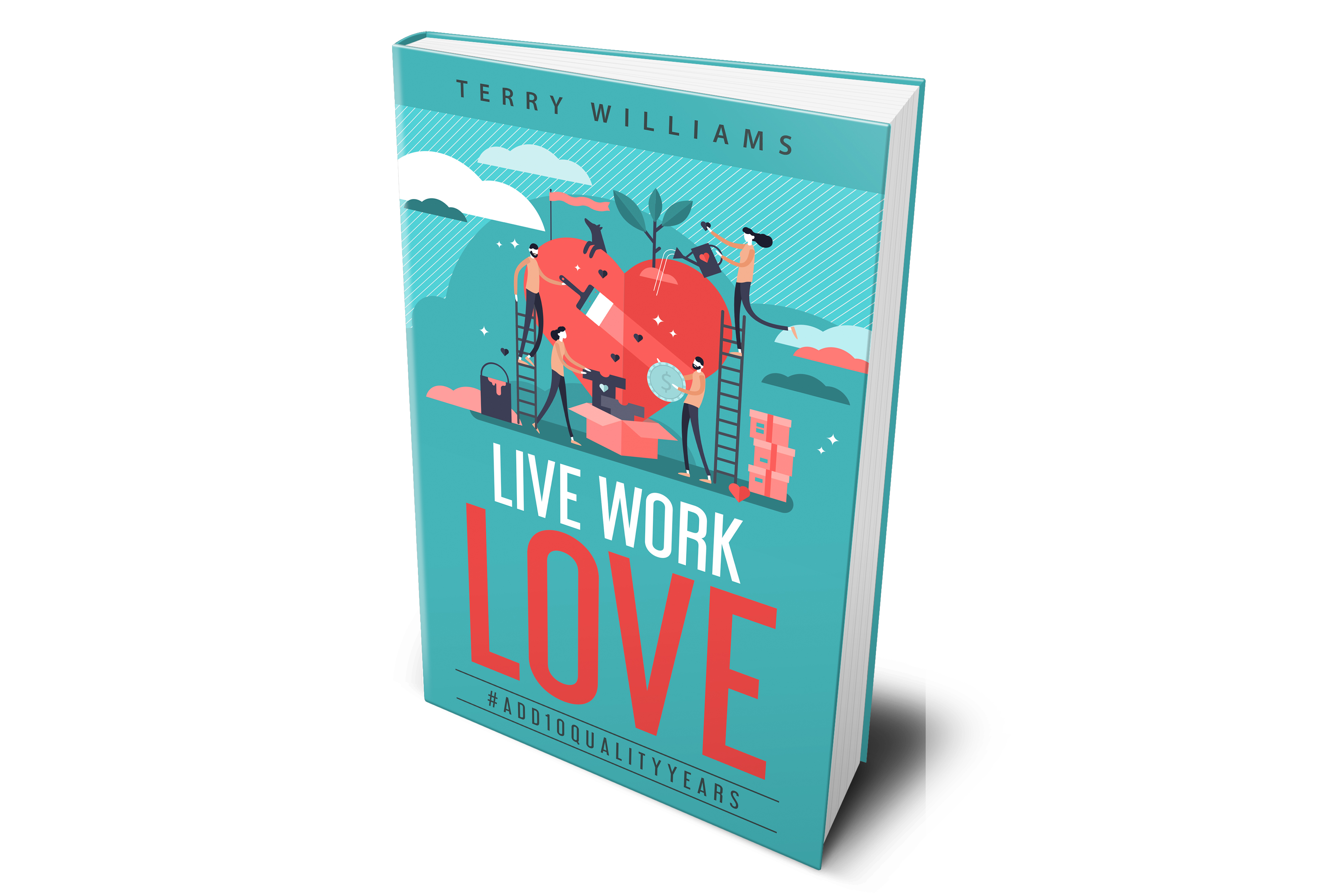
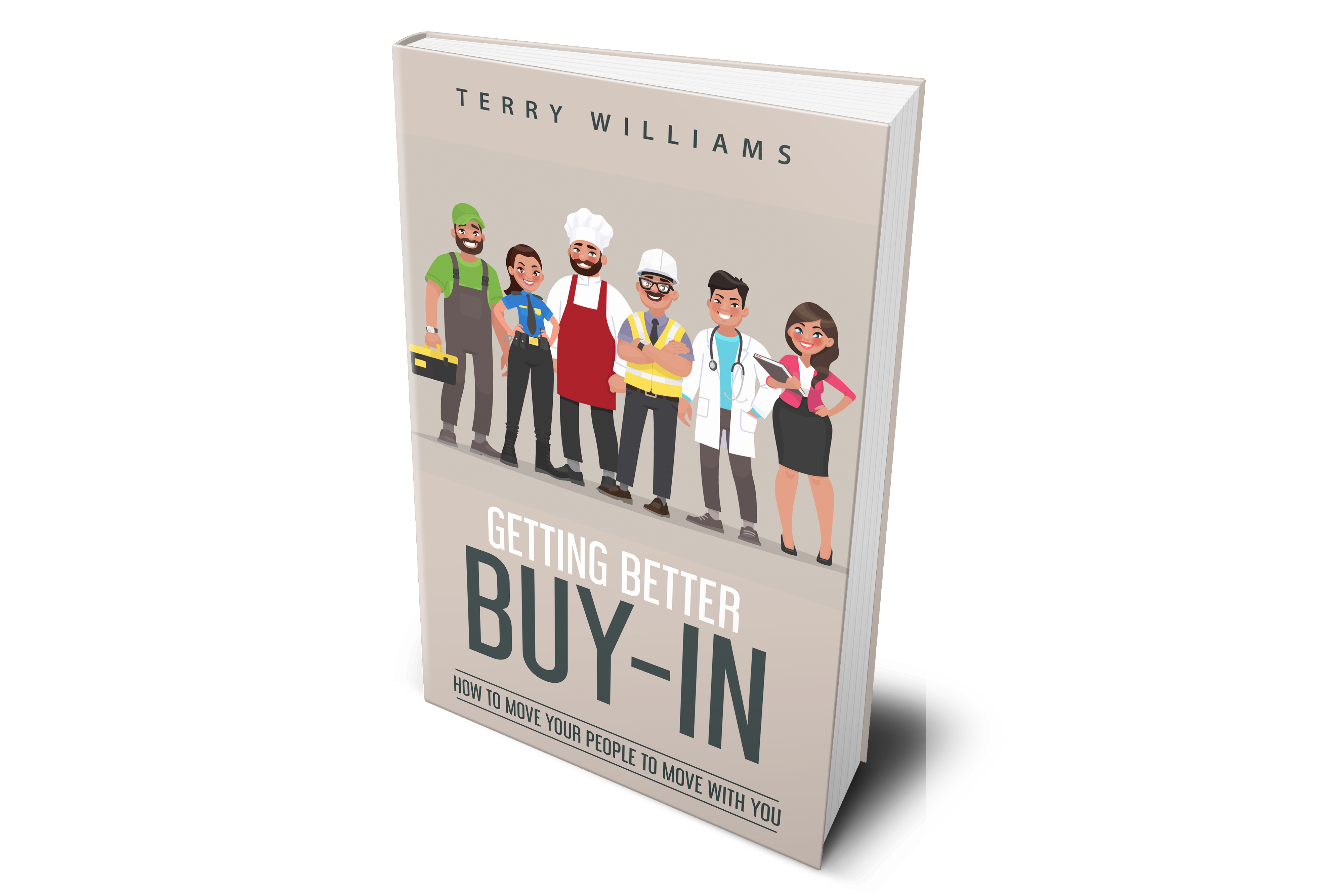


Leave a comment
Comments 0